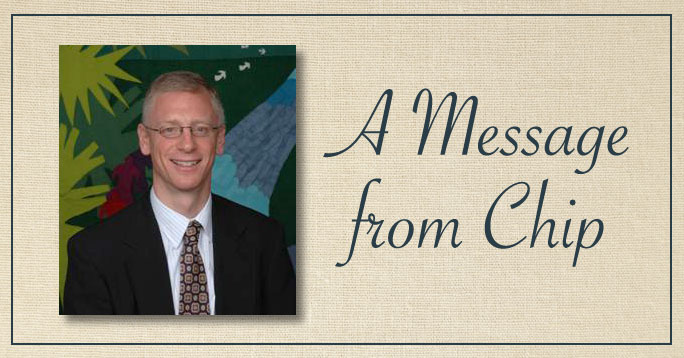 I’ve appreciated conversations with many of you about your thoughts on the Apostles’ Creed. It is clear that the Creed was an important part of your faith formation. Memorizing the Creed with phrases like “Maker” (instead of “Creator”), “Holy Ghost” (instead of “Holy Spirit”), “sitteth” (instead of “is seated”), “from thence…” (instead of “and”) shaped how you remember the Creed, your connection to past experiences of church, and the faith you hold today. Saying it in weekly worship shaped many of you and the memories you have of growing up in church and how those people and places were community for you. Others have shared how central it was to your confirmation classes as you prepared to profess your faith and join the church. Our use of the ecumenical version of the Creed (which is actually the older version) has made for some fun moments of splicing together our learned versions with others, similar to the way people say The Lord’s Prayer differently. Thank you for sharing your thoughts, memories, and formative faith experiences with the Creed with me. The Creed has been a way to share who we are and what we believe.
I’ve appreciated conversations with many of you about your thoughts on the Apostles’ Creed. It is clear that the Creed was an important part of your faith formation. Memorizing the Creed with phrases like “Maker” (instead of “Creator”), “Holy Ghost” (instead of “Holy Spirit”), “sitteth” (instead of “is seated”), “from thence…” (instead of “and”) shaped how you remember the Creed, your connection to past experiences of church, and the faith you hold today. Saying it in weekly worship shaped many of you and the memories you have of growing up in church and how those people and places were community for you. Others have shared how central it was to your confirmation classes as you prepared to profess your faith and join the church. Our use of the ecumenical version of the Creed (which is actually the older version) has made for some fun moments of splicing together our learned versions with others, similar to the way people say The Lord’s Prayer differently. Thank you for sharing your thoughts, memories, and formative faith experiences with the Creed with me. The Creed has been a way to share who we are and what we believe.
Our focus on the Apostles’ Creed, however, is not simply about past formative experiences. The Creed is meant to be a rule of life that shapes who we are and how we speak our faith into today’s experience of life. Its purpose is to guide our faith along the journey of life, inviting us to engage different parts of it as we live. Looking up into a starry night invites reflection on the One we call creator or maker of heaven and earth. Reflecting on the gifts of grace and love connect us to the gift of Jesus Christ and the ways he showed us God’s grace and love. Being God’s mission in the world offers opportunities to sense the Holy Spirit’s presence among us and how we are being the holy, catholic (which means universal) church and the communion of saints. Being a church on mission with God connects us to God’s purpose of resurrecting the body, every body into whom God wants all people to be and our opportunity to participate in God’s mission in the world.
I cannot think of a better place to speak the good news of our faith as a symbol of our purpose as a church than into the darkness of Good Friday. To say the Creed by memory is important because we won’t be able to read it in the darkness of that service. But memorizing it also allows us to embody it, to not rely on the printed word, but our very lives to speak the good news of the Creed, of our faith, of Jesus Christ into the darkness of Good Friday and the darkness we are called to enter on mission with God. Some of that darkness is the tension of the verse that is the title of this article.
